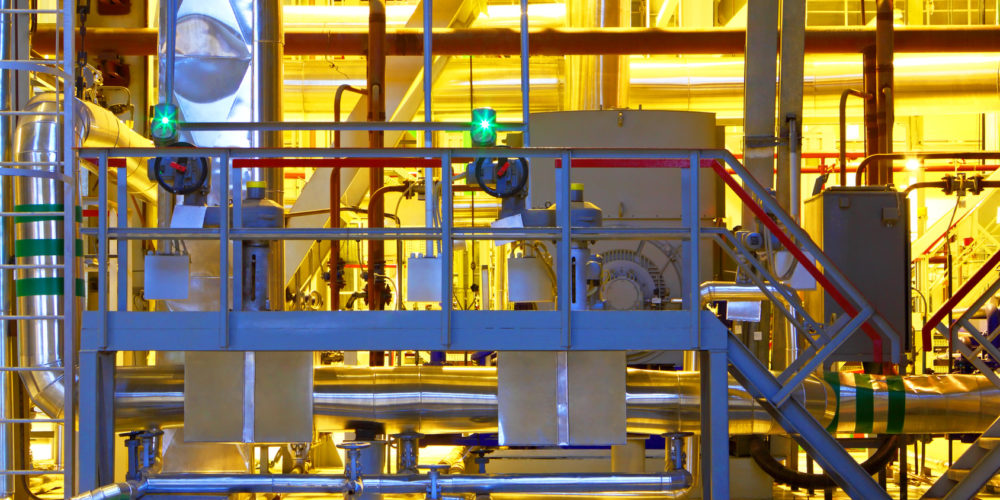At the outset, it should be noted that a license for trading in liquid fuels (OPC), as a rule, is required to conduct business involving either wholesale or retail trading in liquid fuels.
According to the Decree of the Minister of Energy of December 15, 2016 on the detailed list of liquid fuels whose production, storage or handling, transmission or distribution, trading, including trading with foreign countries, requires a license, and whose import requires entry in the register of importing entities (Journal of Laws, item 2039), a license is required for trading in liquid fuels with the following CN codes: 1) refinery intermediates: 2710 12 11, 2710 12 15, 2710 19 11, 2710 19 15, 2710 19 31, 2710 19 35, 2710 19 51, 2710 19 55; 2) liquefied petroleum gas (LPG): 2711 12, 2711 13, 2711 14 00, 2711 19 00, excluding propane-butane mixtures obtained by treating reservoir fluids; 3) pyrolysis gasolines: 2710 12 11, 2710 12 15; 4) motor gasolines: 2710 12 25, excluding white spirit and industrial gasolines, 2710 12 41, 2710 12 45, 2710 12 49, 2710 12 51, 2710 12 59, 2710 12 90, 2207 20 00; 5) aviation gasolines: 2710 12 31; 6) gasoline-type fuels for jet engines: 2710 12 70; 7) kerosene-type fuels for jet engines: 2710 19 21;
8) diesel oils: 2710 19 43, 2710 20 11; 9) light fuel oils and other diesel oils: 2710 19 46, 2710 19 47, 2710 19 48, 2710 20 15, 2710 20 17, 2710 20 19; 10) heavy fuel oils: 2710 19 62, 2710 19 64, 2710 19 68, 2710 20 31, 2710 20 35, 2710 20 39, 2710 20 90; 11) liquid biofuels (liquid): a) 3826 00 10, excluding methyl esters that are additives to liquid fuels, b) liquid biofuels (liquid) other than those listed in paragraph a, regardless of CN code, excluding liquid biofuels that are additives to liquid fuels.
Obtaining a license for trading in liquid fuels (OPC) is not required for trading in liquid gas if the annual value of trading does not exceed the equivalent of €10,000.
Conditions under which you can obtain a license to trade in liquid fuels
The conditions under which a liquid fuels trading license (OPC) can be obtained are contained in the Energy Law and the Freedom of Economic Activity Act. In addition, the President of the ERO, in order to facilitate the preparation of the application for a license to trade in liquid fuels (OPC), has developed so-called Information Packages, which contain useful tips on the process of obtaining a license to trade in liquid fuels and the formal conditions to be met when preparing an application for a license to trade in liquid fuels (OPC).
Entities applying for a license to trade in liquid fuels (OPC) in the Information Packages of the President of the ERO will find answers to the most common questions, in particular what conditions must be met to obtain a license to trade in liquid fuels (OPC) and what documents and in what form should be attached to the application for a license to trade in liquid fuels (OPC). In our opinion, the above-mentioned packages are very helpful for applicants and facilitate the collection of all necessary documents for the application for a liquid fuels (OPC) license.
Procedure for obtaining a license
The procedure itself for obtaining a license to trade in liquid fuels (OPC), is also aimed at verifying whether the applicant, has adequate financial and material resources, as well as knowledge and experience, necessary to conduct sales of liquid fuels (OPC).
The ERO President initiates the proceedings after submitting an application for a license to trade in liquid fuels (OPC), which should include information about the planned activity, including a business plan for conducting sales of liquid fuels and a description of the entrepreneur’s previous activities. In our experience, in the case of newly established companies, one of the key issues for obtaining a license to trade in liquid fuels (OPC) is to have sufficient financial resources to operate under a license to trade in liquid fuels.
The ERO President verifies each application for a license to trade in liquid fuels, taking into account the individual financial capacity of the applicant. In our experience, at low levels of available financial resources, the ERO President may make the granting of a liquid fuels trading license (OPC) conditional on the presentation of additional collateral, e.g. in the form of a bank guarantee or a guarantee provided by a third party to secure potential claims arising from the licensed business. It should also be emphasized that the ERO President, when evaluating the financial capacity of an entity applying for a liquid fuels trading license (OPC), takes into account the financial resources that the applicant may actually have at his disposal. This condition will not be met by, for example, non-binding commitments of third parties to make investments, letters of intent or other non-binding declarations of recapitalization of the entity applying for a license to trade in liquid fuels (OPC).
What else to pay attention to?
It is also worth noting the form of documents attached to the application for a license to trade in liquid fuels (OPC). Some documents may be submitted only in the original, e.g., information on no criminal record from the National Criminal Register issued with respect to the entity applying for a license to trade in liquid fuels and separately the members of the board of directors and persons authorized to represent. If the applicant is a citizen of, or is based in, one of the member states of the European Union, the Swiss Confederation and the member states of the European Free Trade Agreement (EFTA), the information on criminal record should come from the register of the relevant country and be provided, together with a sworn translation and an apostille clause. In addition, the submitted documents must not be older than 3 months counting from the date of their submission to the ERO.
It is worth noting that carrying out business activities without the required license, according to Article 601 of the Act of May 20, 1971. – Code of Offenses, is punishable by restriction of freedom or a fine.
However, according to Article 57g of the Energy Law, whoever conducts business activities in the field of manufacturing, storage or handling, transmission or distribution, trading in liquid fuels, including trading in such fuels with foreign countries, without the required license for trading in liquid fuels, is subject to a fine of up to PLN 5,000,000 or imprisonment from 6 months to 5 years.
In our experience, the process of obtaining a license to trade in liquid fuels (OPC) takes from 2 to 4 months. It is also worth noting that the liquid fuels trading license (OPC) itself is only the first step to actually starting the business of selling liquid fuels, so when planning the date to start selling, it is worth taking into account both the time needed to obtain a liquid fuels trading license and the additional time needed to actually start the business.



